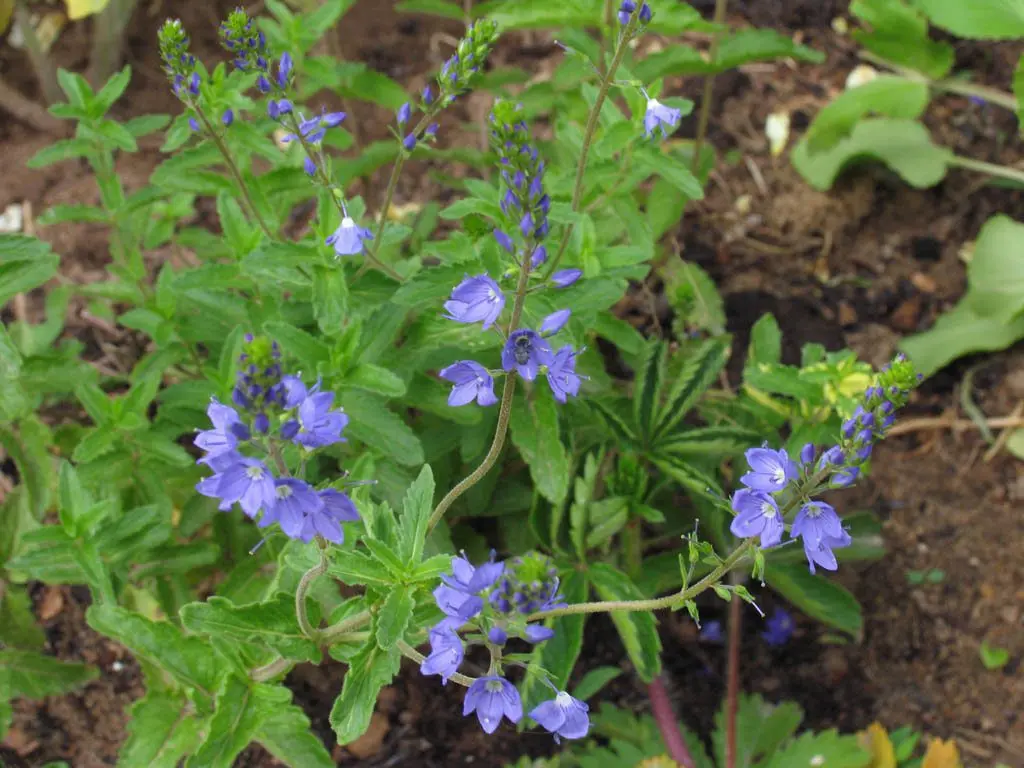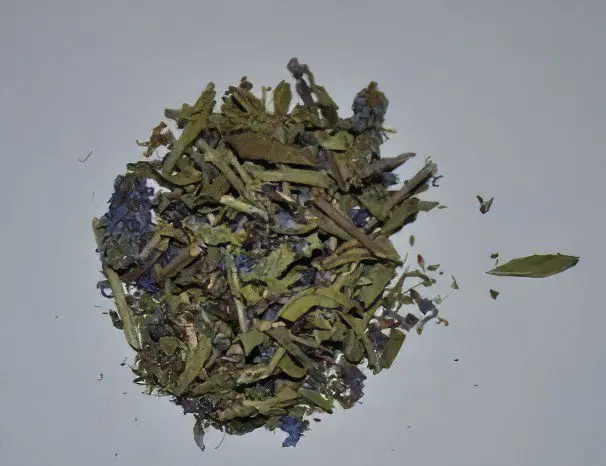Contents
Useful properties and application of Veronica officinalis
Botanical characteristics of Veronica

Veronica officinalis is a plant of the plantain family. This perennial grass grows up to 15-30 cm in height, forms turfs with branches rushing upwards. Veronica’s stem is creeping, with a uniform pubescent surface, rooting at the nodes. The leaves of the plant are narrow-lanceolate or linear, sharp, finely serrated, occasionally entire. The flowers are collected in multi-flowered racemes, growing from the axils of the upper leaves.
Veronica officinalis blooms from mid-summer to autumn. The fruit is a glandular-pubescent flattened box. Plant habitats have been identified in Madeira, the Azores. Veronica also grows in Europe, Turkey, the Transcaucasus, Iran, Sakhalin, Dagestan, and the European part of Russia.
Useful properties of Veronica
Folk healers prepare the aerial part of Veronica. The stems, leaves and flowers contain carotene, ascorbic acid, bitterness, glycosides, tannins. The plant destroys microbes, has disinfectant properties. An analgesic, anti-inflammatory, hemostatic and wound healing effect of Veronica officinalis was revealed.
The plant is distinguished by the content of alkaloids, malic, lactic, citric acids, microelements. Also in its aerial part, the presence of anthocyanins, fatty and essential oils, vitamins, aromatic compounds was found. Decoctions of Veronica can be taken as an expectorant and anticonvulsant remedy.
Application of Veronica

Veronica medicinal herb is used for external treatment of any wounds and skin diseases. Washes and baths with preparations based on veronica are effective for non-healing wounds, ulcers, purulent rashes, and skin itching. From the infusion of the herb, an excellent medicine is obtained that relieves fungal skin lesions, used for sweating feet.
Veronica is used in homeopathy, it is an excellent choleretic agent. Include it in the composition of breast tea, which is recommended for dry cough, bronchial asthma and diseases of the upper respiratory tract. With gastrointestinal diseases, gastritis with low acidity, veronica, due to the bitterness and tannins contained in it, quickly restores the body, stimulates appetite and normalizes bowel function.
The recipe for a decoction has been known for a long time: 2 tablespoons of herbs are poured into a thermos with two glasses of boiling water, insisted and taken 3-4 times a day 20 minutes before meals.
The diuretic properties of veronica infusion are useful in diseases of the urinary tract, help with gout. Veronica officinalis is used for nervous overexcitation, during menopause. The calming properties of the plant eliminate insomnia, headaches. taking Veronica officinalis helps to stop bleeding – both internal and external. Fresh decoction, taken orally, can be saved from the effects of bites of poisonous spiders, snakes, and steamed veronica grass should be applied to the lesions.
Veronica oak
Veronica oakwood has a stem that rises or prostrate, dotted with two rows of small hairs. In June-September, small light blue flowers appear, gathering in axillary loose brushes located opposite each other in the upper part of the stem. The fruit of the plant is a flattened box with numerous ovoid, smooth and flat seeds. Rhizome thin, creeping. Medicinal grass grows on the edges and glades in the European part of Russia, in Altai, in Western Siberia, in the Far East, in Central Asia and in the Caucasus.
Decoctions and infusions of the plant are prescribed by folk healers for colds, bronchitis, tuberculosis, bronchial asthma. The use of Veronica is acceptable for diseases of the liver, kidneys, bladder, stomach. Medicinal herb treats rheumatism, stops internal bleeding, improves well-being during menopause, helps to cope with insomnia, exhaustion of the body.
Outwardly, the grass is used in the form of lotions for boils, burns, and for washing wounds. To treat the skin from fungal infections, you need to pour 1 glass of Veronica grass juice with 1 glass of 90% alcohol and leave for 10 days.
Contraindications to the use of Veronica
There are no contraindications for the use of Veronica officinalis.









